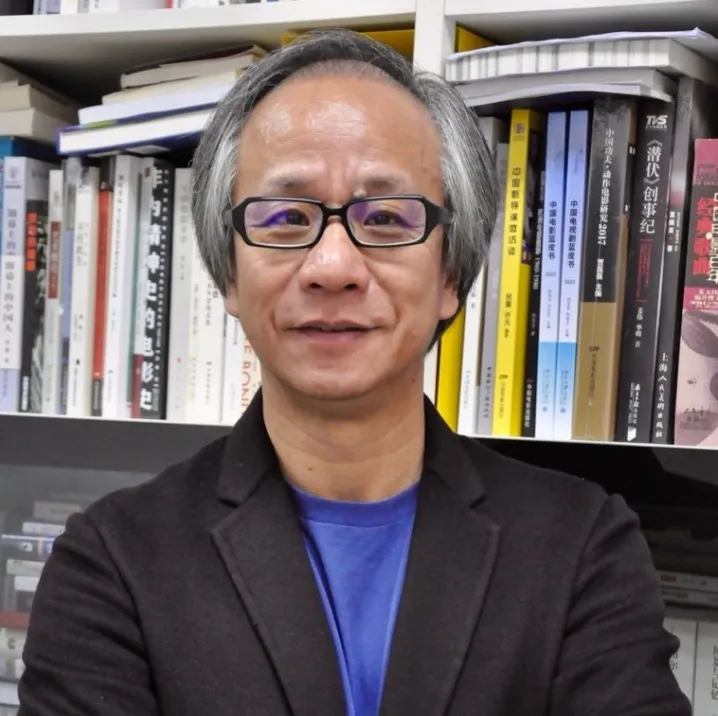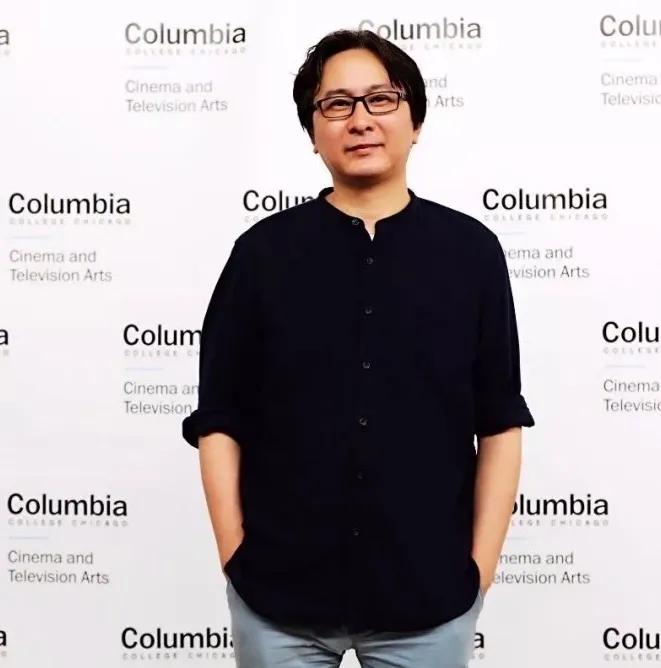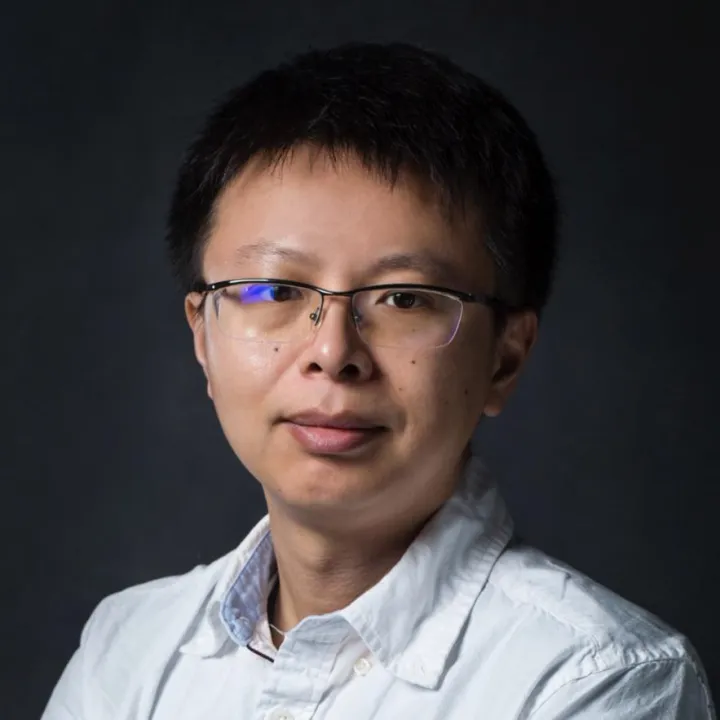Forward Future
Feature Interview to Celebrate 10th Anniversary of Forward Future Section
The Forward Future Section was founded at the 4th Beijing International Film Festival (BJIFF) in 2014. Since its inception, the section has paid constant attention to rising directors worldwide, and has discovered and trained many innovative young filmmakers with distinctive individuality. Through the section, you are able to see exquisitely produced films with avant-garde messages, and find out what global young filmmakers think and care about. Passionate and dynamic, they bring new forces to global cinema.
Retrospective clip of the 10th anniversary of the Forward Future Section
A feature interview is planned and conducted to celebrate the 10th Anniversary of the Forward Future Section. Interviewees include Wu Guanping, Art Director of Forward Future, Ye Hang and Wang Yao, programmers of the section. They walked us through bit by bit the section over the past decade.

Wu Guanping
Art director of the BJIFF Forward Future Section, professor and Director of the China Film Culture Institute, Beijing Film Academy, and chief editor of the Journal of Beijing Film Academy
▌A decade of cinematic presentation about humanity and reality from Chinese perspective
The Forward Future Section, jointly initiated by the BJIFF Organizing Committee and Beijing Film Academy at the 4th BJIFF in 2014, is dedicated to young filmmakers. On one hand, given that world class film festivals have sections that encourage experimentation and innovation for new cinematic trends, like the Un Certain Regard at the Festival de Cannes and Horizons at the Venice International Film Festival, it’s essential for the BJIFF to set up similar section so as to develop itself into an A-listed international film festival. On the other hand, as the biggest higher education institution for film education in Asia, Beijing Film Academy needs such a platform to allow its students to see filmmaking by young people around the world. It’s an invaluable annual opportunity for exchanges and learning. The section has been successfully held for nine editions since its inception in 2014, except for suspension due to the pandemic in 2020. I’ve been working in the Forward Future Section for probably the longest time. I’ve played many roles, including the invitation and screening of films, reception of casts & crews in Beijing, and invitation of jury and jury-related affairs since its being an official competition section of the BJIFF in 2021.
Throughout the decade, we screened more than 160 first or second films by newcomer directors. Those films are not just distinctive new works by newcomer filmmakers. In retrospective, they put together a clear-cut picture of the history of cinema in sync with the changing global environment and revolution of the audiovisual media. It’s fair to say those works offered a cinematic presentation about humanity and reality from Chinese perspective over the past decade. More preciously, they are possible because of newcomer filmmakers. It’s very enlightening for creation by Chinese newcomer directors, especially so for realistic filmmaking. Perhaps, the foundational attributes of films screened under the Forward Future Section are meticulous observation of the reality and people around us, and rational authentic narration.
Hopefully, the section will show us the certainty that art brings to our mentality in a world full of uncertainties in terms of politics, technology and ecology.

Ye Hang
Programmer of the BJIFF Forward Future Section, and associate research fellow of the China Film Culture Institute, Beijing Film Academy
▌Maximum display of outstanding films in the “greater Chinese-speaking community”
I joined the second edition of the BJIFF Forward Future Section in 2015, and have been working for the section ever since. And it’s 10th edition this year. For the first few editions, I was mainly responsible for the work related to “film”. Film-related work is the most important part of a film festival as it covers all stages from the beginning to late ones. At the very beginning, I worked on film selection and invitation. I picked both foreign and Chinese films at various editions, but I put my focus on Chinese films; once the official selection is defined, corresponding film distributors will send us the films; we will start DCP testing, and have subtitles of foreign films translated by student volunteers, who may have to learn and get adept at subtitling; we have to take into account availability of casts & crews in Beijing and runtime of films when scheduling films to be screened every day; there were a few editions where we had expert jury and voting by students, in which case we had to make, collect and calculate votes; last but not least, there is meet-and-greet to be scheduled. I once hosted meet-and-greets with directors of Chinese films, the content of which was later published in the Journal of Beijing Film Academy.
I think it’s a systematic project to organize a film festival, which encompasses many parts and steps, and entails teamwork, division of responsibilities, attention to detail and patience. As organizer of the Forward Future Section, our institute—the China Film Culture Institute, Beijing Film Academy, is different since the organizing team is not fixed unlike many film festivals. A majority of volunteers are students at the institute, and they graduate every three years. And they won’t participate in the organization again when they graduate. Team members are always changing. Therefore, it’s essential to pass on experience. One solution is to ask experienced students in senior classes to mentor newly enrolled volunteers on a smaller team; besides, I remember I compiled a document to include where problems are more likely to occur in each step, and how to avoid them. Newly enrolled volunteers would read the document first to avoid as many mistakes as possible.
I hope the section would be better and more influential. And we will pick or invite more outstanding films by newcomer directors, and enable young directors to show their talents on the broad platform. I also hope the section will get more open and diverse, and closely related to social and historical development.

Wang Yao
Programmer of the BJIFF Forward Future Section, assistant research fellow of the China Film Culture Institute, Beijing Film Academy
▌A treasure section that focuses on academic research and artistic creation
I’m in charge of two aspects of the Forward Future Section. Firstly, pick and recommend films from various film festivals at home and abroad every year based on my research to the section; second, watch films that apply for the section every year, and offer my review.
In my view, picking films for the section perfectly combines my academic research and social services. For one thing, I can bring to BJIFF fans some of the best works by new directors from around the world that are not well known but are well worth watching; for another thing, the job is helpful for my academic progress in the field of “film festival research”. I’m very grateful towards the Beijing Film Academy and BJIFF Organizing Committee for giving me this rare opportunity.
As a part of the BJIFF, the Forward Future Section is one of the few film festivals in Chinese mainland with an art director, under whose leadership the selection reflects clear and distinctive academic views. In this sense, the selection not only organizes creations by global young directors and pays attention to innovation in artistic techniques and subject matters, but also provides reference on creation for young directors and students majoring in film study in China.
As far as I observed, after the section started ticket sales to the general public, it’s better known, and becomes a critically acclaimed treasure section of the BJIFF, which in turn attracts more and better films. This year the section has collected excellent films by new directors shortlisted at world’s top film festival. It’s one of the characteristic innovation of the section to focus on films produced in small countries.
I do hope the Forward Future Section will include more films that are yet to have world or international premiere, and develop into a crucial platform for newcomer directors, especially Chinese ones, to access international film festivals.
Please download the Beijing International Film Festival APP for more interesting content

